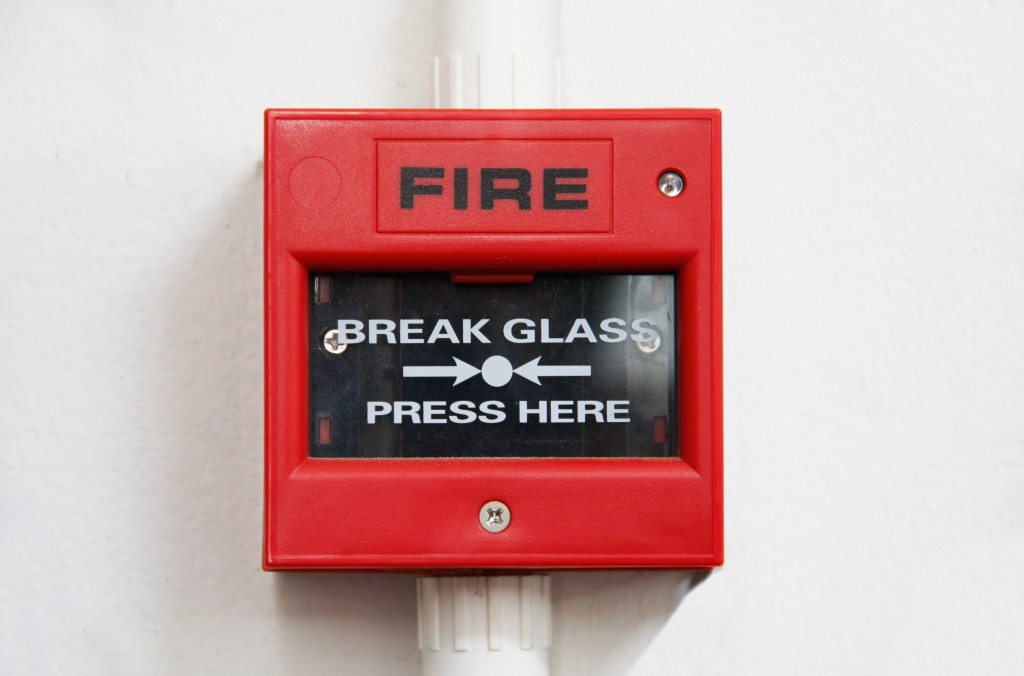- Fires can cause damage to rental properties and endanger tenants’ lives.
- Common causes of fires include smoking, cooking accidents, electrical issues, and flammable materials.
- Install fire dampers and smoke detectors in your rental property; inspect them regularly.
- Keep fire extinguishers in easily accessible areas like the kitchen or bedrooms.
- Regularly maintain your heating sources, and have a qualified electrician inspect the electrical wiring.
As a landlord, ensuring your tenants’ safety and well-being is paramount. One of the things that can pose a significant risk to any property is a fire. Fires can not only cause damage to your property but also endanger the lives of your tenants. Therefore, taking measures to mitigate the fire risk in your rental property is crucial. This blog post discusses some proactive steps you can take to keep your rental property safe from fires.
The Prevalence of Fire Incidents
According to the National Fire Protection Association, there were 1.3 million fires in 2018 alone, resulting in an estimated 3,620 civilian deaths and 16,500 civilian injuries. The same report concluded that most of these fires, nearly 70 percent, occurred in residential buildings. These numbers demonstrate how crucial it is for landlords to take fire prevention measures seriously.
Common Causes of Fire in Rental Properties
Several common causes of fires in rental properties include smoking, cooking accidents, electrical issues, and flammable materials. Smoking is one of the top causes of residential fires, as a dropped or smoldering cigarette can easily ignite a fire. Cooking accidents are also a primary culprit, whether leaving food unattended on the stove or oven or using flammable oils.
Furthermore, outdated or faulty electrical systems can spark and cause damage, and flammable materials such as cleaning supplies or gasoline can easily ignite if not stored properly. Understanding these common causes of fires in rental properties can help renters take preventative measures to protect themselves and their homes.
Fire Prevention Tips
Here are some simple but effective ways to mitigate the fire risk in your rental property:
Install Fire Dampers
Fire dampers are critical to any rental property’s fire safety plan, as these particular doors contain smoke and flames and keep them from spreading. However, just installing these dampers is not enough to ensure their effectiveness.
Regular fire damper testing services are necessary to maintain their functionality and ensure they will work when needed most- during a fire. Investing in these essential services is a small price to pay for the peace of mind that comes with knowing your building and its occupants are safe in the event of a fire.
Install Smoke Detectors

Smoke detectors are necessary in any rental property to prevent fires from becoming catastrophic. Install smoke detectors in every room of your rental property, particularly in hallways, bedrooms, and the kitchen. Check the smoke detectors regularly to ensure they’re in working order, and replace the batteries if needed.
You should also check to ensure the smoke detectors are close to or mounted on the ceiling and not in any corners. Smoke tends to rise, so having your smoke detectors in the right place is essential for detecting any potential fires quickly.
Install Fire Extinguishers
In a small fire, a fire extinguisher can be used to prevent it from growing into something more significant. Keep fire extinguishers in easily accessible areas near the kitchen and bedrooms. Ensure that your tenants know how to use them in an emergency.
Maintain Your Heating Sources
Ensure that your rental property’s heating sources are regularly maintained, especially before each winter season. Professionals, such as HVAC technicians should inspect heating sources. Ensure your tenants know how to safely operate heating sources and encourage them to report any malfunctions immediately.
Electrical Safety
Electrical safety is critical in mitigating fire risks. Have a qualified electrician inspect your rental property’s electrical wiring to ensure that it complies with local safety regulations. Encourage tenants to use extension cords only when necessary, avoid overloading outlets, and unplug appliances that are not in use.
Educate Your Tenants

Educate your tenants about fire safety. Provide them with safety guidelines, evacuation routes, and an emergency action plan. Conduct regular fire drills to prepare them in a fire emergency and review fire safety procedures with new tenants.
Final Thoughts
As a landlord, you are responsible for ensuring that your rental property is safe for your tenants. Fires can be hazardous, and taking preventive measures to protect your tenants and property is crucial.
By installing smoke detectors and fire extinguishers, maintaining your heating sources, ensuring electrical safety, and educating your tenants about fire safety procedures, you can significantly mitigate the fire risk in your rental property.

